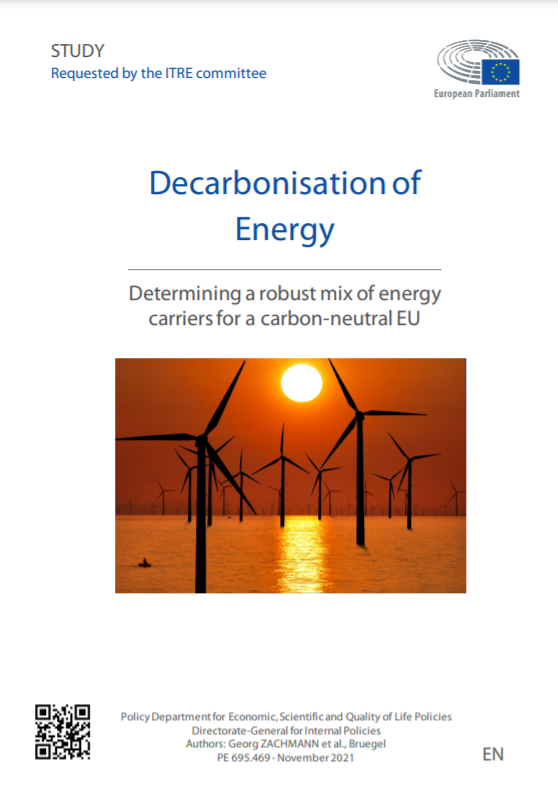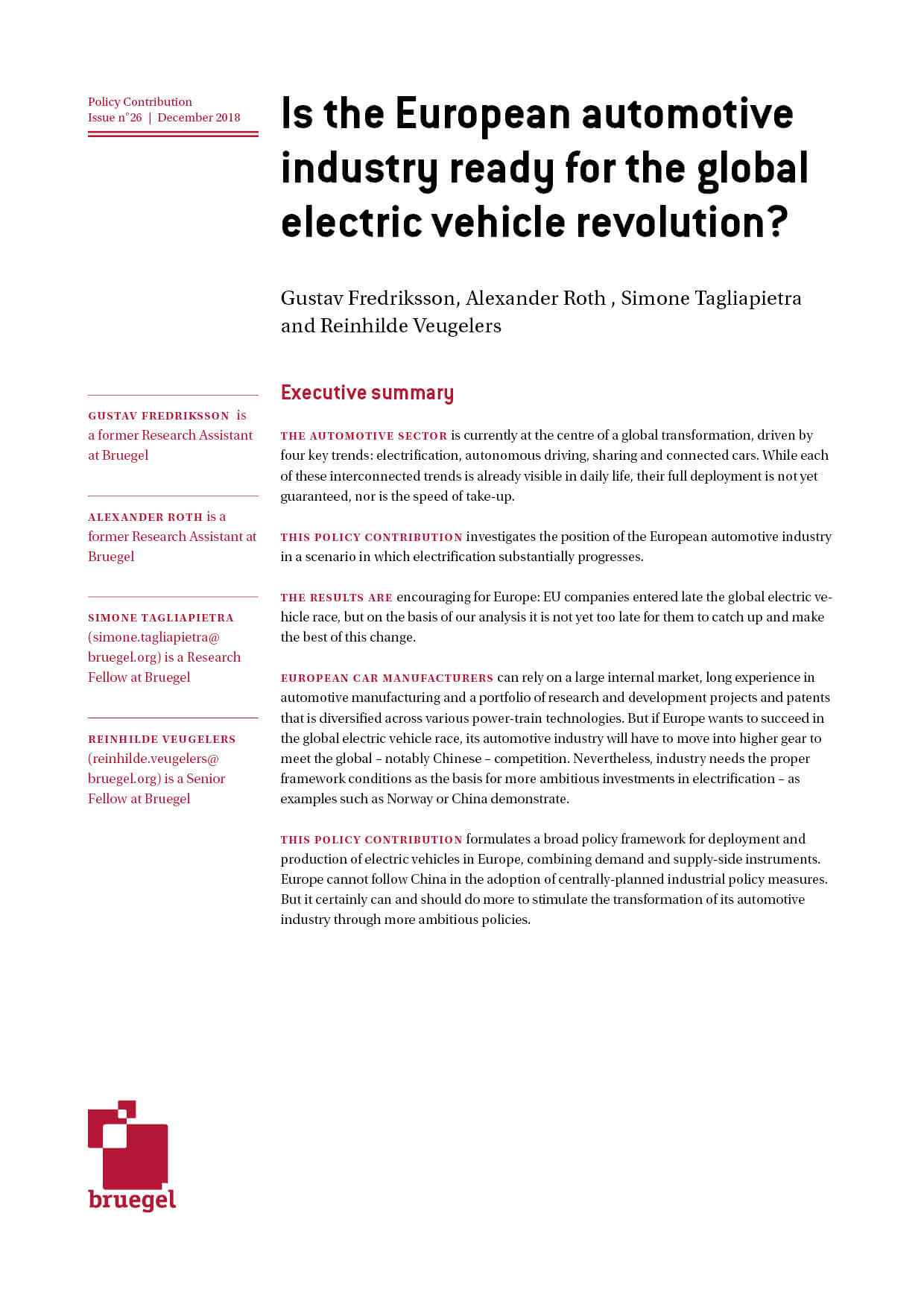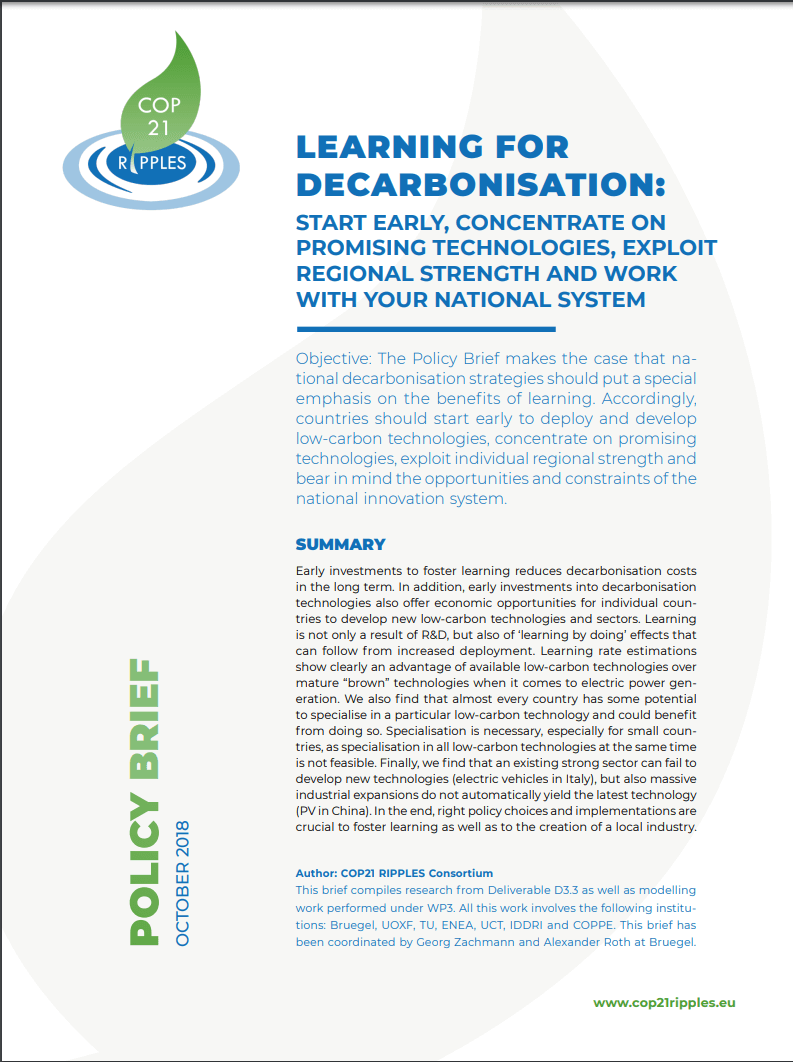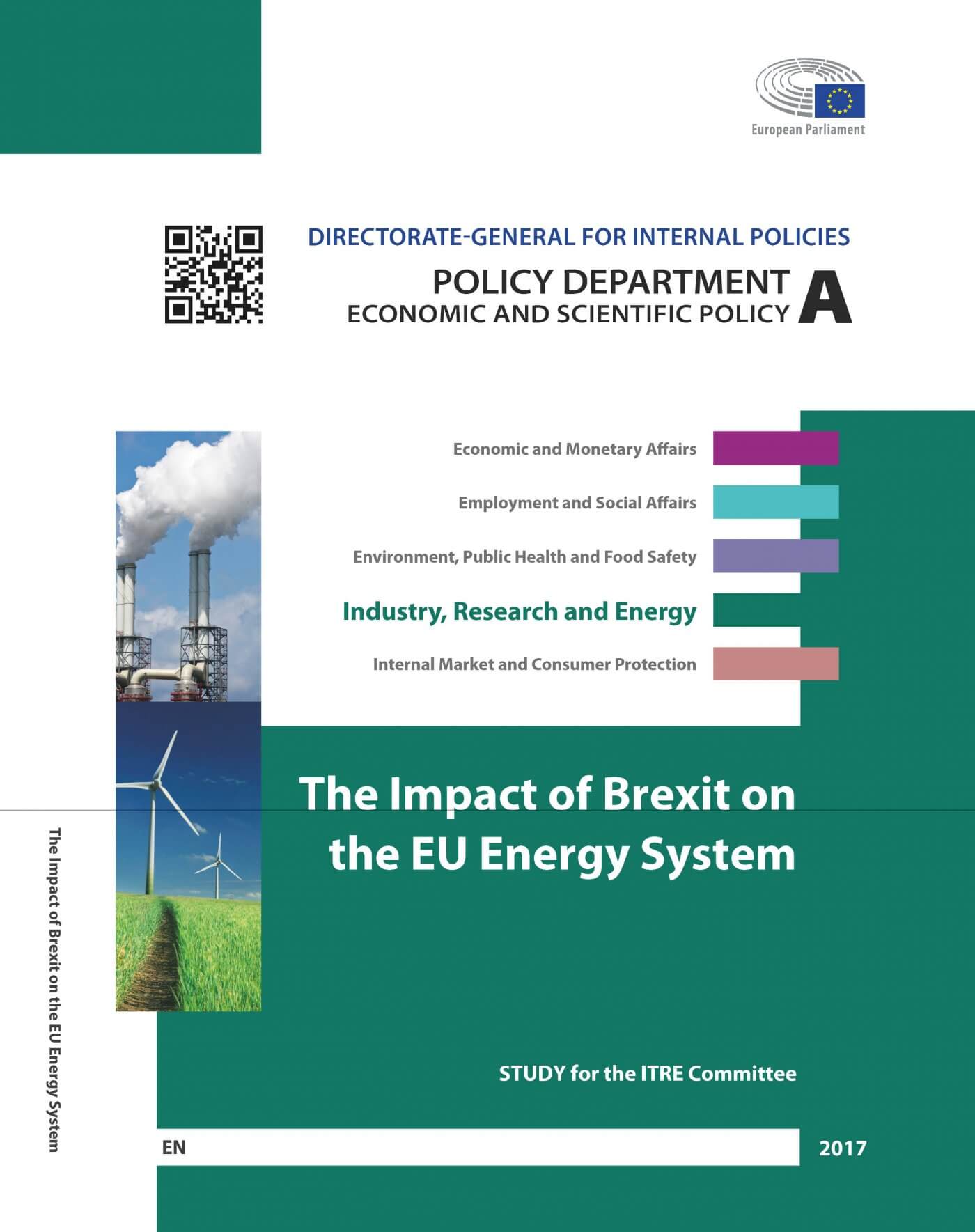Former scholars

Alexander Roth
Research Assistant
Twitter: @roth_kohl
Alexander Roth, a German citizen, works as a Research Intern at Bruegel in the area of climate and energy policy. He holds a BSc and MSc in Economics from the University of Mannheim and an MSc from the Free University of Brussels (ULB).
Prior to joining Bruegel, Alex worked on the European Carbon Trading System at DG Climate Action in the European Commission. He conducted research at the Centre for European Economic Research (ZEW), Commerzbank AG and the University of Mannheim.
Alex's research interests include empirical microeconomics, focusing on climate, energy, and environmental economics and policies.
He is fluent in German, English and French, and has a good knowledge of Spanish.











